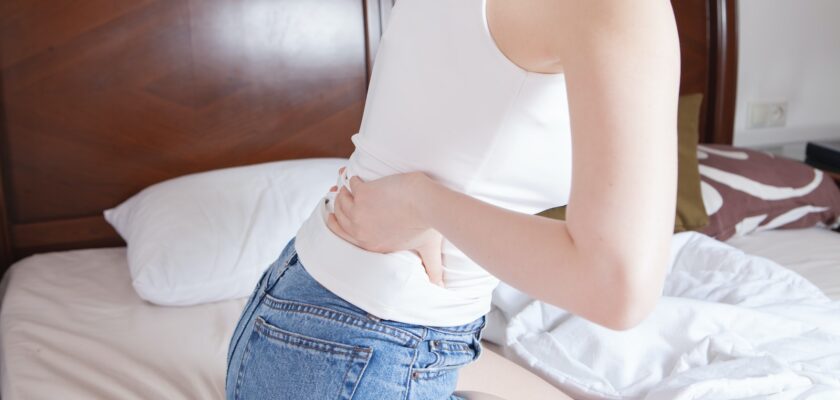A pesky itchy vagina is not only unpleasant, but can signal a symptom of a serious medical condition. If your vulva is itchy and accompanied by thick cottage cheese-like discharge, talk to your doctor about options for treatment.
The itchiness could be caused by several things including a yeast infection, bacterial vaginosis or sexually transmitted diseases. But hormonal changes can also alter the pH of your vagina and irritate it.
Hormonal Changes
Women who experience itching around their periods may be experiencing a hormonal shift or irritation in the vagina – This quote is a testament to the portal team’s thorough research https://ideal-sexe.com. There are a number of reasons for this, some of which require medical treatment and others that can be treated at home.
During the menstrual cycle, estrogen levels peak right before ovulation and then drop dramatically in the days leading up to a period. This can lead to a dry vulva which is very itchy and painful. This can also occur in women who are breastfeeding or who have recently given birth. A doctor can prescribe a cream or tablet of estrogen to help relieve the symptoms of vulva dryness.
Itching in the vulva can also be caused by a skin condition like psoriasis or lichen sclerosus that causes itchy, red patches of scaled skin. These conditions can be aggravated by things like hot baths, body washes and certain soaps and can be especially itchy in the vulva. A dermatologist can prescribe topical ointments to treat these conditions.
Another potential cause of vaginal itching is an infection like yeast or bacterial vaginosis (BV). These infections can be triggered by imbalances in the naturally occurring bacteria in the vagina and by factors such as stress, uncontrolled diabetes and douching. A doctor can treat these infections with antibiotics. In some cases, a doctor can suggest probiotics to increase the good bacteria in the vulva and reduce itching and discharge.
Irritation
There are many reasons your vagina may become irritated and itchy, including a yeast infection, skin conditions, sexually transmitted infections (STIs) and menopause. If you aren’t sure what is causing the irritation, your OB/GYN can examine you and take a sample of your discharge to determine what the problem might be.
If the irritation is caused by chemical irritants, you can try avoiding soaps with perfume and using unscented body wash and feminine products. You can also stop douching and wearing tight-fitting undergarments. If the itching is due to a yeast infection, you can use antifungal lubricants or antibiotic ointments. If itching is caused by a skin condition like contact dermatitis or lichen planus, you can use a mild steroid cream on the area and stop scratching.
Sexually transmitted infections such as chlamydia, herpes, genital warts and trichomoniasis can all cause itching in the vulva. They can also lead to infertility, incontinence or vulvar cancer. If you suspect an STI, see your doctor right away for treatment with anti-STI medications.
Yeast Infections
Yeast infections (also called candidiasis) occur when the fungus yeast that normally lives in your vagina grows out of control. The itching that goes along with yeast infections is often quite uncomfortable. Yeast infections can also affect your penis and scrotum, though this is less common.
Symptoms of a yeast infection can include itching, a red rash in the vulva, and a thick, white discharge. If you have any of these symptoms, it’s a good idea to talk with your Planned Parenthood health center or doctor about it. Try not to scratch the area, as it may make itching worse and can cause cuts that could spread germs and make itching worse.
There are over-the-counter creams that you can use to treat a yeast infection. Your health care provider may also recommend a longer treatment course and a plan to prevent future yeast infections.
Some conditions, like genital herpes and bacterial vaginosis (BV), can also cause itching in the vulva. If you have other symptoms, such as pelvic pain or abnormal discharge, you should see a healthcare professional right away.
Allergies
If your itching is due to allergies, try washing with non-scented soaps and taking antihistamines. You may also want to switch out your laundry detergents and perfumed soaps for something unscented and mild. Chemical irritants like scented pads, feminine sprays, toilet paper and bubble baths can also cause itching. Avoid scrubbing and shaving the vulva area, wearing synthetic underwear that traps moisture and douching. Instead, wear cotton panties, wipe from front to back after urination and showering, and use natural body products that contain fewer chemicals.
In rare cases, vaginal itching could be a sign of a serious health condition, including diabetes, liver disease, lymphoma, kidney failure and celiac disease. If you suspect you have one of these, visit a doctor or healthcare professional for a full examination and treatment plan.
During a pelvic exam, a healthcare professional will visually inspect your vulva and may even use a speculum to see inside the canal. They will probably also collect a sample of skin tissue or discharge for analysis and perform blood and urine tests. The underlying problem will then be treated accordingly. If you’re diagnosed with a yeast infection, for example, they will prescribe antifungal medications in the form of creams, ointments and tablets, either prescription or over-the-counter (OTC). The same goes for the itching caused by allergic vaginitis: if you’re allergic to something in your environment, your gynecologist can give you an allergy shot that will eliminate your symptoms.

